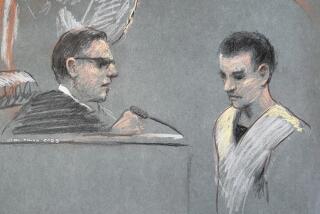Generals face ‘severe’ discipline
WASHINGTON — At least six Air Force and two Army generals face potentially career-ending punishment in the mishandling of U.S. nuclear warhead components, Defense Department officials said.
Military officials are expected to announce the disciplinary action today. At least two of the officers are three-star generals.
“It is extensive and it is severe,” a senior Defense Department official said, speaking on condition of anonymity because the punishment had not yet been announced.
Acting Air Force Secretary Michael B. Donley and Air Force Chief of Staff Norton A. Schwartz will detail the disciplinary action and a job reshuffling at a news conference today.
In March, Air Force officials discovered that four electric fuses used to trigger nuclear missiles had been mistakenly shipped to Taiwan in 2006. The disclosure followed a 2007 incident in which six nuclear warheads were accidentally flown across the country strapped to the bottom of a B-52 bomber.
The errors prompted a wide-ranging investigation into Air Force oversight of the nuclear arsenal and triggered a shake-up of Air Force commanders. Donley and Schwartz were tapped by Defense Secretary Robert M. Gates after previous Air Force leaders were dismissed.
Although the expected punishment is considered severe, another Defense Department official said demotions were unlikely. Instead, officers will receive letters of reprimand that could effectively end their careers and force them to retire.
Army officers were implicated because the nuclear fuses were shipped from an Air Force base to a Defense Logistics Agency warehouse. The agency is primarily overseen by Army officers.
Air Force officials met this week to discuss reforms and other proposals to improve nuclear oversight. Donley and Schwartz are expected to outline some of those steps today.
Some officers think the Air Force is being unfairly singled out. One Defense Department official with experience on nuclear oversight said the Navy also had made mistakes, including the disclosure last month of a radioactive leak from a nuclear submarine near Japan.
“This looks like a gross double standard,” the official said, speaking on condition of anonymity.
This month, a task force led by James R. Schlesinger, a former Defense secretary, recommended that the Air Force reorganize its Space Command to take charge of nuclear oversight.
A second Schlesinger report, taking a broader look at the Defense Department’s nuclear oversight, is expected within two months.
--
More to Read
Sign up for Essential California
The most important California stories and recommendations in your inbox every morning.
You may occasionally receive promotional content from the Los Angeles Times.










